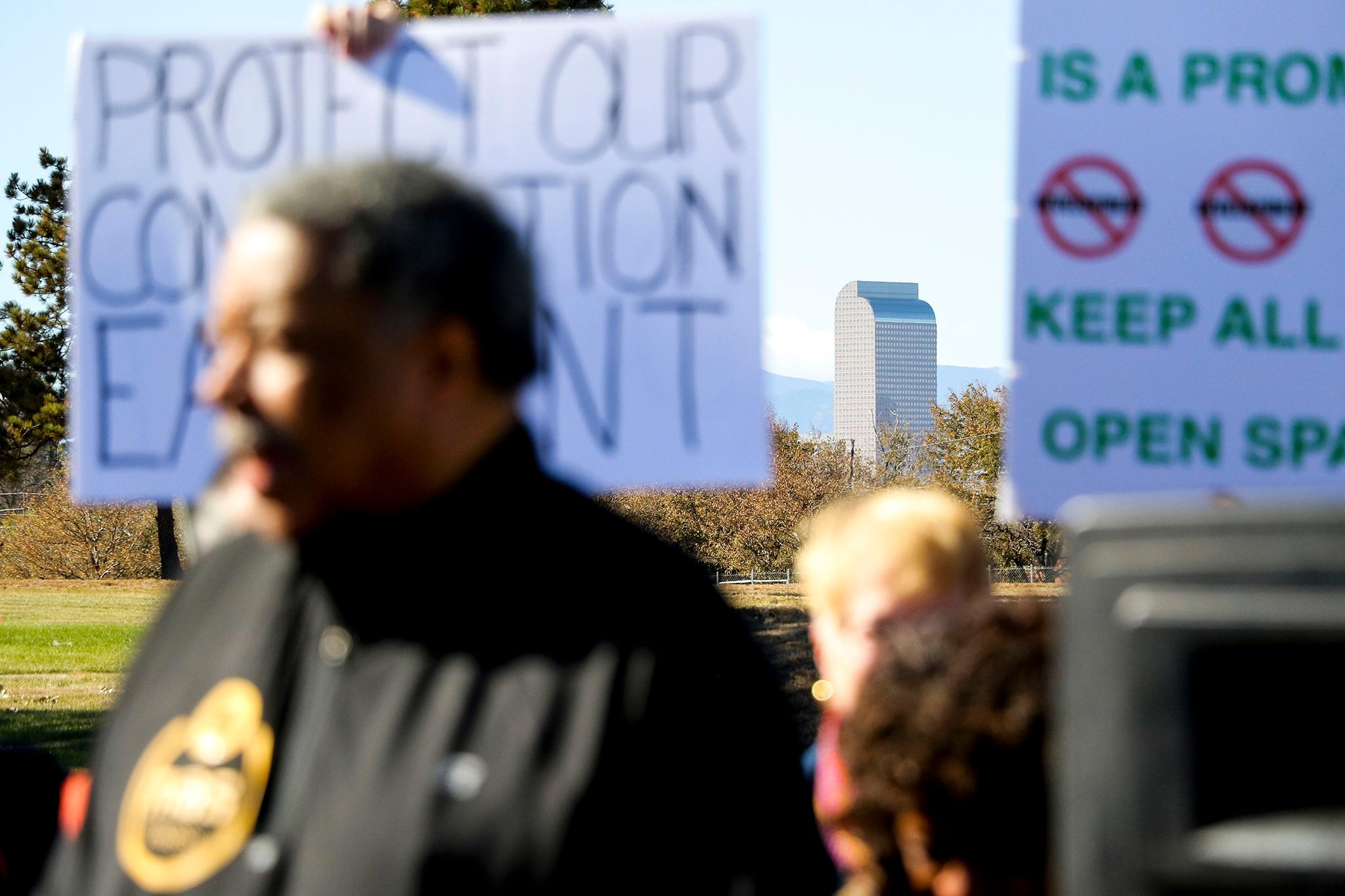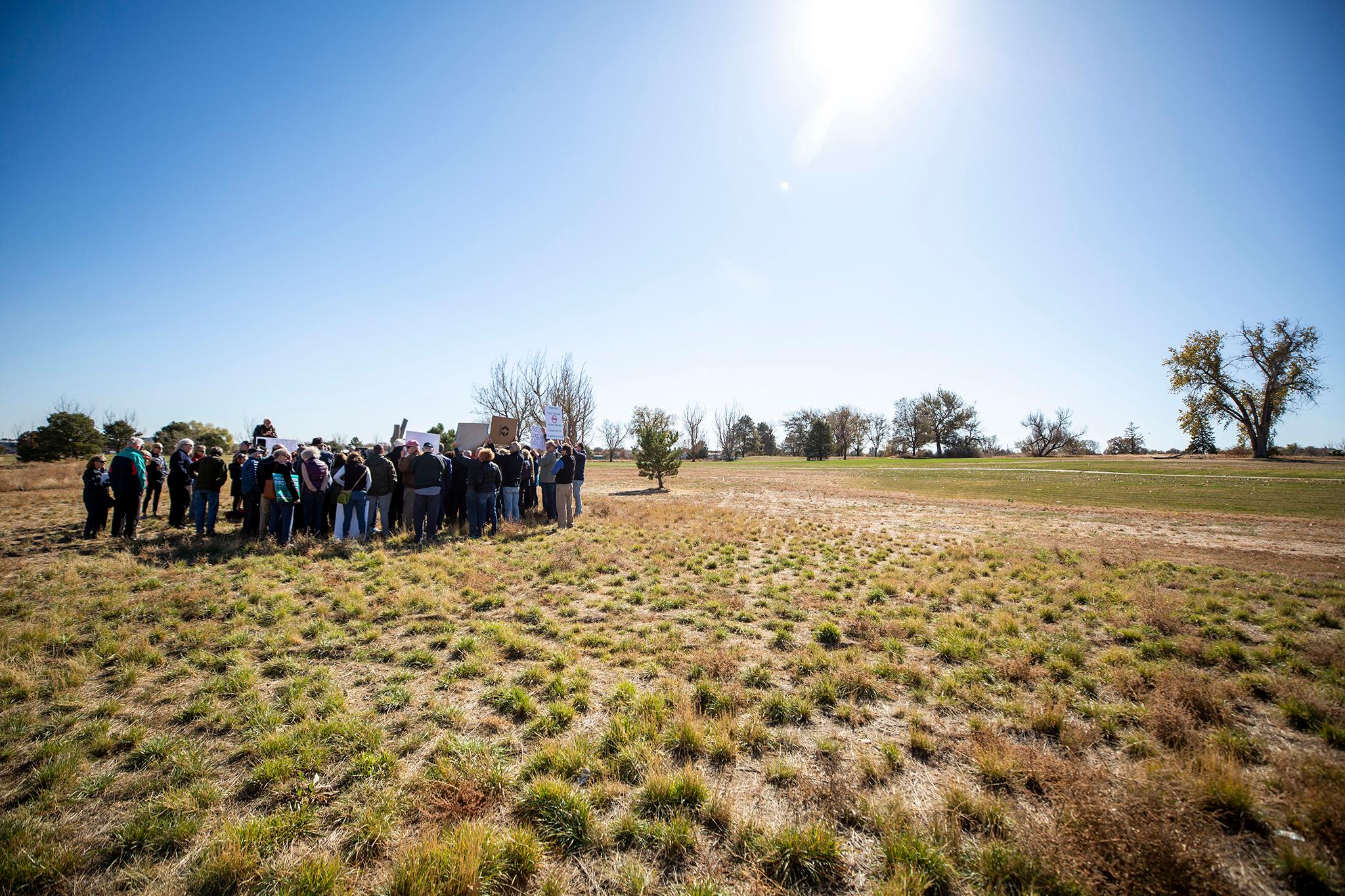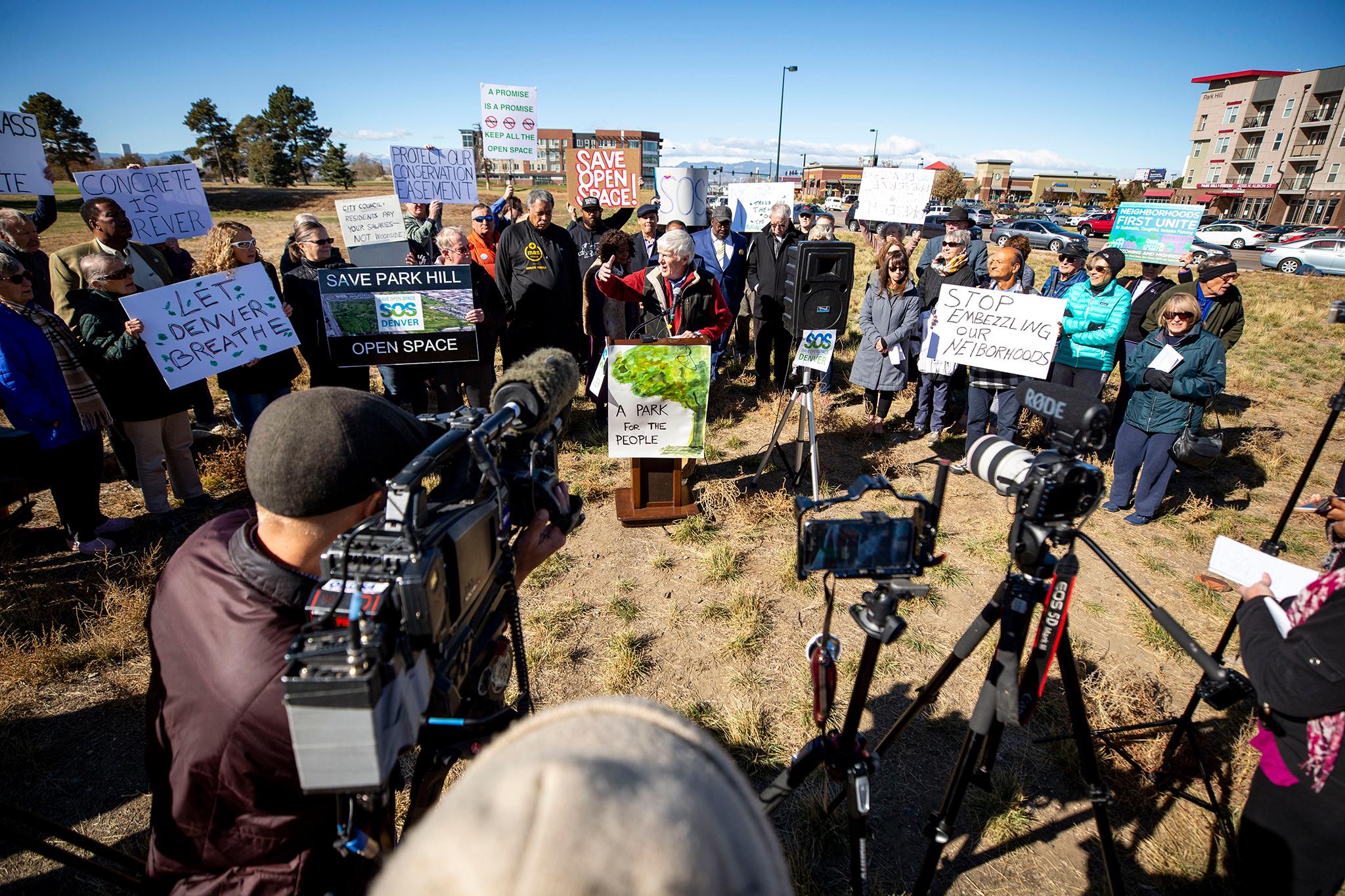Denverites resisting development on golf course land in Park Hill say a recent change to state law gives their cause a leg up over developers and the Hancock administration, who see the green swathe as a place for homes, businesses and parks.
The 155-acre chunk has been entangled in a legal and political jungle for about three years with four big players arguing over its future: the city government, former golf course operator Argus, the land's original nonprofit owner Clayton Early Learning, and developer Westside Investment Partners.
Westside bought the land from Clayton in July for $24 million. While various lawsuits endure, the big question right now is whether Westside will be able to build stuff.
Save Open Space Denver, a group backed by former Denver Mayor Wellington Webb, claims the company cannot. Members held a press conference Tuesday to amplify a state law signed in June that they say makes it harder to kill an agreement that protects the land from development. The agreement, known as a conservation easement, has been a part of the golf course's deed for decades.

The law states that it cannot be terminated unless a court says the conditions on or around the golf course have changed to make its continued conservation impossible. Advocates say the language makes building illegal.
"I believe that Westside wasn't aware of that (law), because if you take a look at when the deal was closed, it was closed right after the law went into effect," Webb said.
Denver City Council members Debbie Ortega and Candi CdeBaca have asked the mayor's office for its legal opinion in an official letter.
Kenneth Ho, a principal at Westside in charge of the Park Hill land, said he doesn't have the legal expertise to comment on Save Open Space's claim. But.
"That being said, I think that one of our tenets as a company is to be inclusive in the communities that we operate," Ho said. "And while it's important to listen to everyone in the community, I think this group represents very specific viewpoints."
He wants to see a city-led process like the one orchestrated for River Mile, the 58-acre district planned near the riverfront that will plop about 8,000 homes near light rail stations where Elitch Gardens and parking lots currently dominate. That strategy would bring a broader variety of voices from people who Ho thinks might speak to Park Hill's other needs: housing, neighborhood services and parks.
"I think the land here can accomplish all of those needs, not just one," Ho said.
Haggling between the City Council and developers resulted in a guarantee that 1,200 of 8,000 units will be priced below the market rate. Twelve percent of the land is reserved for public parks and open space, according to the agreement. Ho said he believes park space at Park Hill would cover substantially more area.
Save Open Space made clear Tuesday that development of any kind is unwelcome in their eyes. "You can never reclaim this space" if you replace the grass and trees with concrete, Webb said. Plus the group firmly believes building on the land is illegal. Woody Gurnsey, one of the group's leaders, said any city process to initiate development would be a "wasteful drain of energy and financial resources."

Webb and Gurnsey said the city needs housing, but it's more appropriate east of the golf course on industrial land.
"Do we need housing? Yes," Webb said. "The question you should be asking is, is this the only site? And I think the answer is no. It's like having a contractor come to your house to renovate your house and they tell you they'd rather build on something new as opposed to starting in the basement."
There's another snag. Both parties disagree over whether the conservation contract allows for the land to be anything but a place to tee off.
This acreage has never been free to access -- it's just open to people who pay to play golf. Save Open Space wants the defunct golf course to become a park and believes the easement allows it. The City Attorney's Office says the only thing allowed right now is a golf course.
The agreement "provides for the conservation of the golf course land as open space and for the continued existence and operation of a regulation-length 18-hole daily fee public golf course..." the document states. It also says the land is being preserved for "recreational use."
This article was updated to include Ho's comment about park space.













